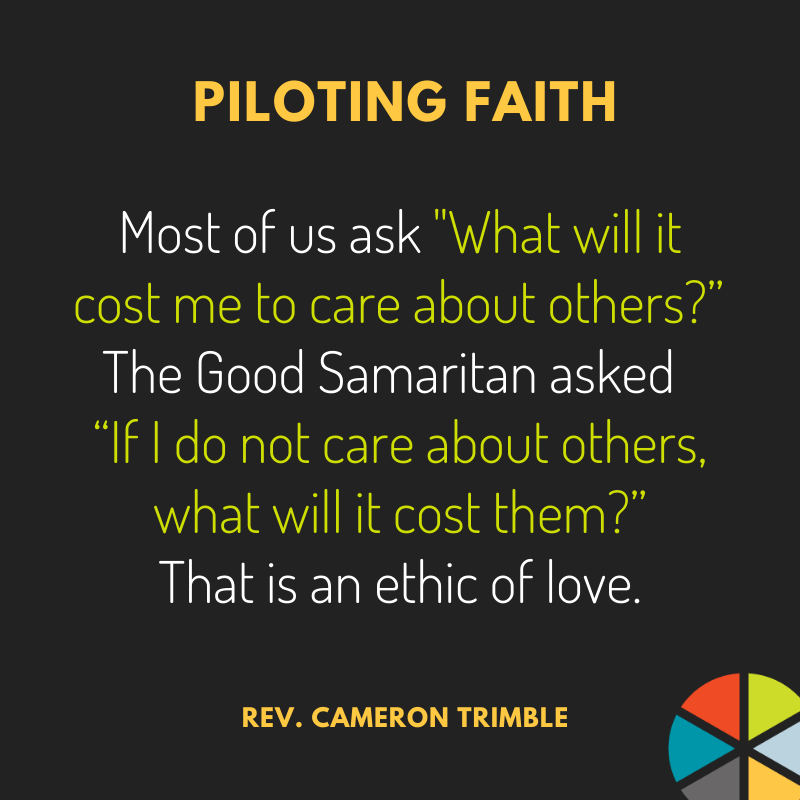Today’s meditation comes from a reflection offered by Hill Charmichael about a conversation with a seminary professor that changed his understanding of the Parable of the Good Samaritan. He tells the story this way…
A few years ago, a seminary professor of mine decided to use the parable of the Good Samaritan to make a point about how fear influences the decisions we make. He turned to Luke 10 and began to read. I zoned out for a few minutes….
After my professor finished reading, he looked up and said, “This is not a story about being nice. This is a story about the transformation of the world.” All of the sudden, I was paying attention again. Then he went on to explain that Jesus is responding to a question by sharing that there are three types of people along the road between Jerusalem and Jericho.
The first type are the robbers, whose ethic suggests that “what is yours is mine at whatever cost”. The robbers will take whatever they need through violence, coercion and whatever means necessary. These are the people who will leave us physically, mentally and emotionally beaten and bruised along life’s road with nothing left but our shallow breath.
The second type of person to walk along the dangerous road between Jerusalem and Jericho is represented by the priest and the Levite, whose ethic suggests that “what is mine is mine, and I must protect it even if it means you get hurt in the process.” They aren’t bad people. Both the priest and the Levite are deeply respected in their communities. They very likely follow all the societal rules and norms. They sit on local boards. They pay their taxes on time and likely coach their son’s or daughter’s teams. They also show a great deal of love to those within their immediate communities, but because of what crossing the road to help might cost them, they put their head down and go about their business. So, without even recognizing it, they do more harm than good. Their focus is inward toward their needs and the needs of those who are most like them. It’s an ethic that leads the good and decent priest and Levite toward a life of valuing their reputations instead of relationships. And it often results in them choosing their own individual rights over the health and well-being of their neighbors.
Then there is the Samaritan, whose ethic is love. Along one of the most dangerous roads in all of history seems to live by a code that says, “what is mine is yours…if you have need of it.”
My safety is yours…if you have need of it.
My security is yours…if you have need of it.
My resources are yours…if you have need of them.
My health is tied to your health.
My well-being is tied to your well-being.
Reverend Martin Luther King, Jr. preached on this text often and once said that the real difference between the priest and the Levite from the Samaritan is the question that each must have asked. The priest and the Levite likely asked, “If I stop to help this man, what will happen to me?” The Samaritan likely asked a very different question – “If I do not stop to help this man, what will happen to him?”
This story holds the tension of our faith. At the heart of good religion, we come to understand that we belong to one another. Our denial of that deep connection tears at our sacred fabric and endangers us all. That’s the shock – It isn’t our diversity and connection that we need to fear; it’s our illusion of difference and separation. That is the Big Lie that the Samaritan calls out.
Today, as you interact with people, hold both questions in your mind: “If I care about this person, what will happen to me?” and “If I don’t care about this person, what will happen to them?” See which answer opens you to God. That’s the path we must follow.
We are in this together,
Cameron
